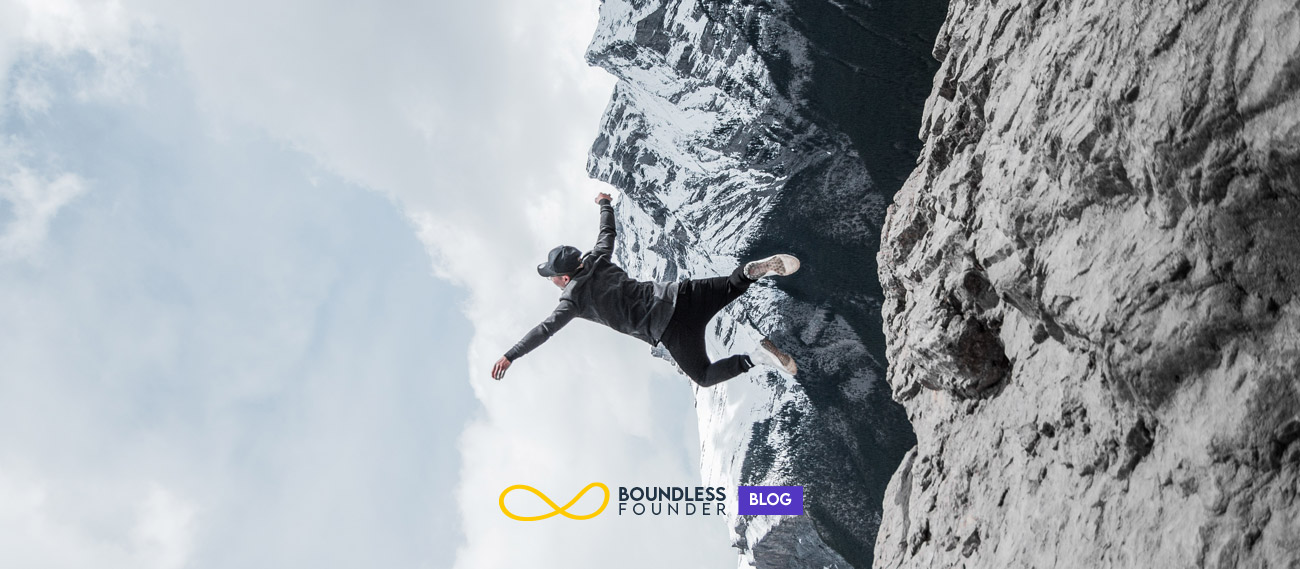2018, my first year running my startup, was a sleepless year for me. I spent countless nights thinking about every possible scenario, every potential threat to my startup. Most of my team were contractors, and the fear that one of them might decide to wipe out our infrastructure or code kept me up more nights than I can count. My health deteriorated significantly, but I kept pushing forward, convinced that I had no other choice.
Then, one day, it all caught up with me. I couldn’t get out of bed. It wasn’t just exhaustion; it was something more profound. As I lay there, my mind raced to understand what was happening. Was it because I hadn’t slept enough? Or was I on the brink of a panic attack? My body felt like a prison, and I was trapped, unable to move. I realized, in that moment, the power of the Body Mind Connection. My body had reached its breaking point, a direct result of the mental and emotional strain I had been under. It was a wake-up call that I couldn’t ignore.
The Wake-Up Call No Entrepreneur Can Ignore
My wife noticed immediately that something was wrong. With her help, I managed to get out of bed and take a short walk outside. The fresh air helped clear my mind, but my body was still weak. She insisted I go to urgent care immediately, but I refused. I knew what was wrong with me.
I had taken myself and my startup too seriously. I wasn’t prepared for failure, and the stress of that fear had manifested physically. That short-lived body failure was an eye-opener, a stark reminder of the profound impact that my mental state had on my physical health. It happened quickly, without any visible warnings, but it was the wake-up call I desperately needed.
Many entrepreneurs fall into the same trap. We prioritize our businesses over our bodies, forgetting that our physical health directly impacts our mental clarity and decision-making ability. The body-mind connection isn’t just some wellness trend—it’s a fundamental reality that can make or break your entrepreneurial journey.
The Bidirectional Relationship Between Body and Mind
Your body and mind aren’t separate entities operating independently. They form a complex, interconnected system where changes in one directly affect the other. This bidirectional relationship means that your physical health significantly impacts your cognitive function, emotional stability, and ultimately, your business decisions.
When we discuss the body-mind connection for entrepreneurs, we’re talking about a powerful reality that operates whether you acknowledge it or not. Your physical state directly affects how you:
- Process information and make decisions
- Regulate emotions during high-pressure situations
- Maintain focus and energy throughout the day
- Respond to setbacks and challenges
- Communicate with team members, investors, and customers
Recent neuroscience research confirms what many ancient traditions have always known: the body and mind are not separate systems but deeply integrated aspects of a single whole. Your gut has its own neural network that communicates with your brain. Your cardiovascular system influences cognitive function. Your muscle tension affects emotional processing.
When Your Body Speaks, Your Business Listens
I used to be a fitness fanatic. Before starting my company, I worked out daily, tracking everything from steps to calories. But as my startup took off, exercise fell by the wayside.
For months, I felt fine, like I could power through on adrenaline alone. But eventually, my body started sending warning signals: a constant ringing in my ears, heartburn, and trouble sleeping. I ignored these signs, pushing through with caffeine and sheer willpower.
The warning signs kept escalating until that fateful morning when my body simply refused to cooperate any longer. Looking back, I can see how my physical decline directly affected my business decisions:
- Impaired cognitive function: Sleep deprivation reduced my ability to think critically and creatively, leading to reactive rather than strategic decisions.
- Emotional volatility: Physical exhaustion made me more susceptible to emotional swings, causing me to overreact to minor setbacks and underreact to significant opportunities.
- Diminished presence: My physical state affected how I showed up in meetings, potentially undermining confidence in my leadership.
- Decision fatigue: Without proper physical care, my decision-making deteriorated throughout each day, with my worst choices typically coming in the evening hours.
The doctor at the urgent care facility diagnosed my condition as early signs of a panic attack. This was my wake-up call. I started with short walks, then eased into light workouts, and eventually rebuilt my entire routine.
Even though my business problems hadn’t disappeared, something shifted. The exercise calmed my mind. After about a month, I felt more physically and mentally in control.
The Entrepreneur’s Physical Foundation for Mental Strength
Building a business requires immense mental fortitude, but this mental strength can’t exist without a solid physical foundation. Here are the key components of physical well-being that directly impact your entrepreneurial performance:
Get Weekly Funding Breakthroughs
Join 500+ founders getting actionable insights every Tuesday
We respect your privacy. You can Unsubscribe anytime.

1. Sleep: Your Cognitive Reset Button
Sleep isn’t a luxury—it’s a biological necessity that profoundly affects your business performance. During sleep, your brain processes information, consolidates memories, and clears out toxins. Missing sleep impacts:
- Decision-making quality
- Creative problem-solving
- Emotional regulation
- Risk assessment
- Learning capacity
The entrepreneurial mindset often glorifies “hustle” and minimal sleep, but this approach fundamentally misunderstands how human cognition works. Your brain needs those 7-9 hours to function optimally—there are no shortcuts.
2. Movement: The Entrepreneur’s Secret Weapon
Regular physical activity does more than build muscle and burn calories. It:
- Increases blood flow to the brain, improving cognitive function
- Reduces stress hormones while boosting mood-enhancing endorphins
- Improves focus and attention span
- Enhances creative thinking and problem-solving
- Builds resilience to stress and challenges
I discovered that even when mental exhaustion hits—the kind that makes you want to crawl into bed and forget the world—that’s precisely when your body can become your greatest ally. The five-minute rule became my lifeline: commit to just five minutes of physical activity, and often, once I’d started, I’d find the energy to continue.
3. Nutrition: Fuel for Cognitive Performance
What you eat directly affects how you think. Your brain consumes approximately 20% of your body’s energy, making proper nutrition essential for optimal performance. Key nutrition principles for entrepreneurs include:
- Maintaining stable blood sugar to avoid energy crashes and mood swings
- Consuming omega-3 fatty acids for brain health
- Staying hydrated to maintain attention and cognitive processing
- Timing meals strategically for sustained energy
- Limiting caffeine and alcohol, which can disrupt sleep patterns
4. Stress Management: The Physical Side
Chronic stress creates a cascade of physical effects that impair decision-making:
- Elevated cortisol levels that interfere with rational thinking
- Muscle tension that contributes to anxiety and discomfort
- Shallow breathing that triggers fight-or-flight responses
- Digestive issues that create additional physical discomfort
Learning to manage stress through physical techniques—deep breathing, progressive muscle relaxation, and regular exercise—can significantly improve your mental clarity during challenging situations.
Hacking the Body-Mind Connection: Practical Strategies
When I rebuilt my physical routine after my near-collapse, I discovered several practical strategies that had an outsized impact on my mental performance and business decision-making.

1. Start with the Five-Minute Rule
When mental exhaustion hits, commit to just five minutes of physical activity. This tiny commitment overcomes initial resistance, and once you’ve started, momentum often carries you forward.
I applied this approach by placing a yoga mat beside my desk. When faced with a particularly challenging decision or feeling mentally stuck, I’d step onto the mat for just five minutes of stretching or simple movements. This brief interruption consistently improved my mental clarity.
2. Create Movement Triggers
Associate specific physical movements with desired mental states. For example:
- A brief walk before important decisions
- A specific stretching routine before creative work
- A quick set of push-ups before difficult conversations
I developed a habit of taking a short walk around the block before any major investor call or team meeting. This simple practice became a reliable way to shift my mental state into one of calm focus.
3. Implement the 20-20-20 Rule
For every 20 minutes of screen time, look at something 20 feet away for 20 seconds. This reduces eye strain and provides a moment for your brain to process information.
Taking this further, I established a practice of standing up and stretching briefly during these breaks, combining visual rest with physical movement.
4. Prioritize Recovery as a Business Strategy
The most successful athletes don’t train harder than everyone else—they recover better. The same principle applies to entrepreneurs.
I began scheduling recovery periods with the same rigor I scheduled meetings and deadlines. This included:
- Actual vacations where I was completely disconnected from work
- Monthly “recovery days” for deep rest and rejuvenation
- Weekly “mental health hours” for activities that restored my energy
- Daily meditation or relaxation practices
This recovery-focused approach didn’t reduce my productivity—it dramatically increased it by ensuring I brought my best self to the most important work.
Building Physical Strength Builds Mental Fortitude
The physical challenges I faced during workouts became metaphors for the entrepreneurial journey. Each push-up, every breathless sprint, and the ache of my muscles stretching their limits wasn’t just about building a stronger body—it was building a stronger mind.
I realized that embracing discomfort, even seeking it out in the form of physical challenges, could be a powerful tool for personal development. The burning in my muscles reminded me that growth often happens outside our comfort zones. Just as I pushed my body to adapt and become stronger, I could apply the same principle to challenges I faced in my business and personal life.
This mind-body connection reveals a powerful truth: pushing our physical limits can unlock our mental potential. Think of your body as a training ground for your entrepreneurial mindset. The discipline, perseverance, and comfort with discomfort you develop through physical training directly translate to business resilience.
The Shift from Goals to Habits
When it comes to physical fitness, conventional wisdom focuses on setting goals like losing twenty pounds or running a marathon. But what if the key to unlocking our full potential lies not in setting limits but in building habits that expand our capabilities?
Habits, unlike goals, are automatic behaviors that become ingrained in our daily lives. They can transform us in ways we never thought possible—physically, mentally, and emotionally.
The first step is to identify the unhealthy habits holding us back. This might involve late-night snacking, skipping workouts, or succumbing to the allure of the couch after a long day. Instead of overhauling everything immediately, focus on tackling one habit at a time. Small, incremental changes are more sustainable and less likely to trigger resistance.
I took a similar approach to my diet. Instead of obsessing over calorie counting, I replaced unhealthy snacks with healthier alternatives. One small change at a time, I transformed my eating habits without feeling deprived.
The power of habits became even more apparent when I embarked on a six-month strength training program. My seventeen-year-old son, who was already reasonably fit, became my benchmark. At the time, he could easily outperform me in various exercises. However, I decided to embrace the challenge and followed the program religiously. The workouts were demanding, but the structure eliminated any decision fatigue. I knew exactly what to do each day, and it only required an hour of my time.
Four months later, I surpassed my son in one-minute push-ups, cranking out an impressive fifty-five reps. And as a bonus, I lost ten pounds in just three months. The physical transformation was undeniable, but the mental and emotional shifts were even more profound. The discipline and perseverance I cultivated in the gym spilled over into other areas of my life. I found myself more focused, resilient, and better equipped to handle the inevitable challenges of entrepreneurship.
Your Action Plan: The Body-Mind Connection for Entrepreneurs
Ready to leverage the body-mind connection to improve your business decisions? Here’s a practical framework to get started:
1. Conduct a Body-Mind Audit
Take honest stock of your current physical habits and how they might be affecting your business performance:
- Sleep quantity and quality
- Movement patterns throughout the day
- Nutrition choices and timing
- Stress management techniques
- Recovery practices
For each area, note both positive habits to maintain and opportunities for improvement.
2. Identify Your Highest-Impact Changes
Based on your audit, select 1-3 physical practices that would most significantly improve your mental performance. Consider changes that:
- Address your most pressing physical challenges
- Feel sustainable given your current schedule
- Have compounding benefits across multiple areas
- You actually enjoy (or could learn to enjoy)
Remember, the most effective change is the one you’ll actually maintain.
3. Design Your Physical Performance System
Rather than setting vague goals, create specific systems that make these changes inevitable:
- Environmental design: Make healthy choices the path of least resistance
- Habit stacking: Attach new habits to existing routines
- Accountability mechanisms: Share your commitments with others
- Progress tracking: Measure what matters to reinforce behavior
- Recovery protocols: Plan for how you’ll rest and recharge
4. Implement the 30-Day Physical Enhancement Challenge
Commit to 30 days of consistent practice with your selected physical habits. During this period:
- Track both physical metrics and mental/business performance
- Note correlations between physical state and decision quality
- Adjust your approach based on what you learn
- Celebrate small wins to build momentum
At the end of 30 days, evaluate the impact and adjust your system for sustainable long-term practice.
The Ultimate Entrepreneurial Edge
Your body is not separate from your entrepreneurial journey—it’s the foundation upon which all your business success is built. By nurturing this foundation through intentional physical practices, you gain a significant competitive advantage.
This advantage isn’t just about having more energy or avoiding burnout, though those are important benefits. The real edge comes from improved decision-making, emotional regulation, and cognitive performance when it matters most.
As entrepreneurs, we often focus on optimizing our businesses, our teams, and our strategies. But the highest-leverage optimization might be much closer to home—it’s the optimization of the physical vehicle that carries your entrepreneurial vision forward.
My near-breakdown taught me that physical health isn’t a luxury to be addressed “someday” when the business is more stable. It’s an essential investment with immediate returns for your company’s most valuable asset: you.
What physical change will you implement today to transform your entrepreneurial performance tomorrow?
Join our community of resilient founders to continue the conversation about building sustainable entrepreneurial success from the inside out. Join now.











Responses